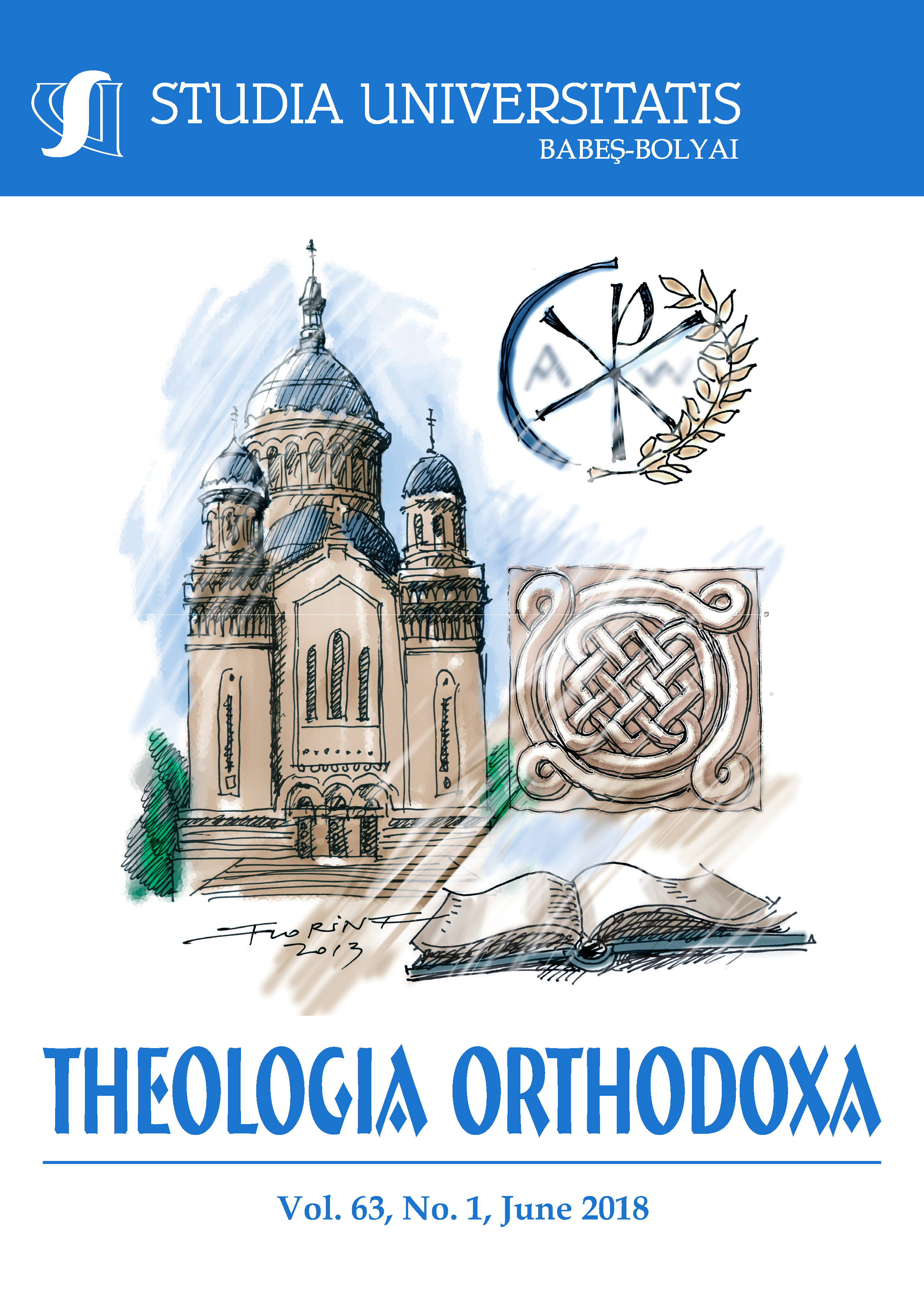THE ANAPHORAS OF MAR THEODORE OF MOPSUESTIA IN THE EAST SYRIAC RITE AND OF ST. JOHN CHRYSOSTOM IN THE BYZANTINE CHURCH – STRUCTURE AND THEOLOGY: COMPARATIVE STUDY
DOI:
https://doi.org/10.24193/subbto.2018.1.07Keywords:
Anaphora of Theodore of Mopsuestia, Anaphora of John Chrysostom, liturgical theology, epiclesis, Theological School of AntiochAbstract
The Liturgy (Mass) is the very life of the Church and its way of existing. In the core of the Liturgy there is the Anaphora, specific to each rite. Regarding the East Syriac Church, one mainly knows three important anaphoras – of Mar Addai and Mari, of Mar Theodore of Mopsuestia and of Mar Nestorius. This paper is focused on the Anaphora of Mar Theodore of Mopsuestia in the East Syriac rite, analysed in parallel with that of St. John Chrysostom, the most used anaphora in the Byzantine Tradition. Both of the authors are significant representatives of the Theological School of Antioch. This subject was scarcely analysed by the contemporary scholars and it gets a plus of importance in my case for accompanies an on-going process of translating the Syriac text of Theodore’s anaphora into Romanian, for the benefit of the Romanian theologians. The paper will be divided into two sections – the first one colligated to the authorship of the two anaphoras, and the second, focused on their structure and theology. Concrete conclusions regarding the identification of some liturgical-theological constants in both the anaphoras will end my research.
References
Brock, S. “Clothing Metaphors as a Means of Theological Expression in Syriac Tradition.” Studies in Syriac Christianity. Variorum, 1992., XI, 11-38.
Hänggi, A.-Pahl, I. Prex eucharistica. Textus e variis liturgiis antiquioribus selecti. Fribourg, 1968.
Hoenerbach, W.-Spies, O., eds. Ibn at-Taiyib. Fiqh an-Nasrânîya. Das Recht der Christenheit, CSCO 167-168/ 18-19. Louvain, 1957.
Jean Chrysostome. Sur l’incompréhensibilité de Dieu, (Homélies 1–5). Edited by A.M. Malingrey. Hom. 3, 54-5, SC 28bis.
Leontius of Byzantium. Adversus Nestorianos et Eutychianos III.19, PG 86.1.
Macomber, F., ed. Cyrus of Edessa. Explanation of the Pascha. Six Explanations of the liturgical feasts by Cyrus of Edessa, CSCO 355-6/ 155-6, 1974.
Mateos, J. “L’action du Saint-Esprit dans la liturgie dite de Saint Jean Chrysostome.” Proche Orient Chrétien 9 (1959), 193-208.
Mingana, A., ed. Commentary of Theodore of Mopsuestia on the Lord’s Prayer and on the Sacraments of Baptism and the Eucharist. Cambridge, 1933.
Mingana, A., ed. Narsai. Homilies of the Mysteries. Narsai doctoris syri homiliae et carmina I. Mosul, 1905.
Parenti, S., E. Velkovska. L’Eucologio Barberini Gr. 336. Bibliotheca “Ephemerides Liturgicae”/ Subsidia 80. Roma: Ed. Liturgiche, 1995.
Raes, A. Anaphorae siriacae. Quotquot in codicibus adhuc repertae sunt. Cura Pontificii Instituti Studiorum Orientalium. Roma, 1939-73, vol. 2, Fasc. 3.
Taft, R. “The Authenticity of the Chrysostom Anaphora Revisited. Determining the Authorship of Liturgical Texts by Computer.” OCP 66 (1990), 5-51.
Vadakkel, J. The East Syrian Anaphora of Mar Theodore of Mopsuestia: A Critical Edition, English Translation and Study. Kottayam, Oriental Institute of Religious Studies India Publications, 1989.
Wagner, C. Der Ursprung der Chrysostomusliturgie. Liturgiewissenschaftliche Quellen und Forschungen, 59. Münster Westfalen, 1973.
Downloads
Published
How to Cite
Issue
Section
License
Copyright (c) 2018 Studia Universitatis Babeș-Bolyai Theologia Orthodoxa

This work is licensed under a Creative Commons Attribution-NonCommercial-NoDerivatives 4.0 International License.





 ISSN (print): 1224-0869, ISSN (online): 2065-9474, ISSN-L: 2065-9474
ISSN (print): 1224-0869, ISSN (online): 2065-9474, ISSN-L: 2065-9474